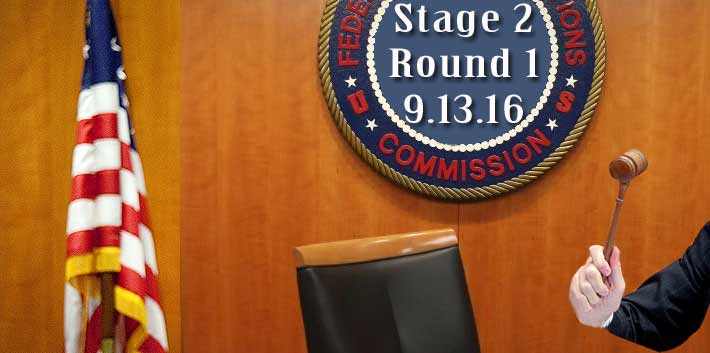
The Federal Communications Commission is moving to a second stage of the 600 MHz spectrum auction, and with a lower clearing target, after the most recent bidding by wireless carriers fell far short of the first-stage target goal of $88.4 billion, raising just $22.4 billion.
The next round will begin on September 13 with the FCC setting a to-be-determined lower clearing price for purchasers to meet.
“Bidding in the forward auction has concluded for Stage 1 without meeting the final stage rule and without meeting the conditions to trigger an extended round,” the FCC said.
Broadcasters, who put their airwave holdings up for sale with the promise of a big payday aren’t thrilled with the initial cash offerings, according to a statement from the National Association of Broadcasters (NAB).
“NAB is surprised by the modest participation by wireless carriers in the first stage of the TV auction. Perhaps the notion of a ‘spectrum crisis’ peddled in Washington for the last seven years is not as acute as policymakers were led to believe. We look forward to the second round of the auction, where wireless carriers will be afforded another bidding opportunity,” the statement read.
CTIA VP or regulatory affairs Scott Bergmann took the high road to the first stage’s low bidding, stating in a blog, that it “already generated the second-highest bidding total in FCC history.”
“This is already bigger than the last low-band auction of 700 MHz ($18.96 billion) that was heralded at the time by the FCC as a ‘history-making auction’, ” he said.
The FCC will be buying fewer stations’ spectrum in the new round. Some stations will be getting lower prices; others could drop out as prices decline.
One hundred and four companies applied to bid for the broadcasters’ airwaves, including AT&T, Verizon and T-Mobile.
Sprint had announced that it won’t be participating in the auction.
Only 62 companies qualified to bid on the spectrum. In the first round, demand for spectrum exceeded the supply in just two of the top 50 markets: Raleigh, N.C., and Brownsville, Tex.
















